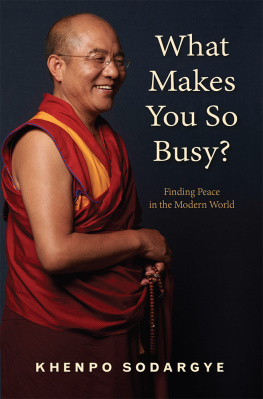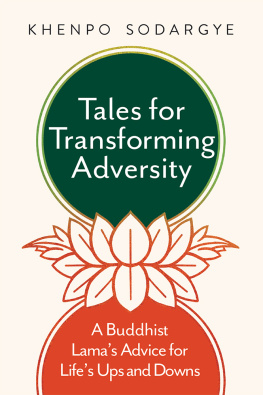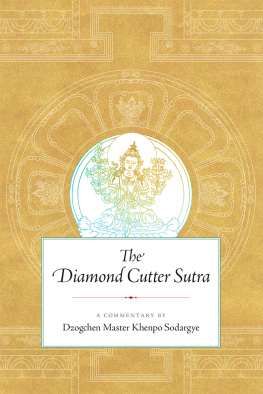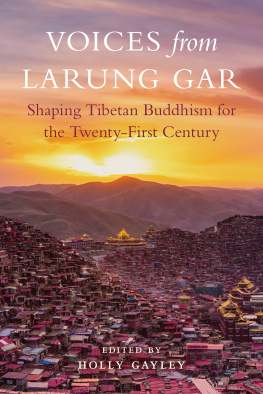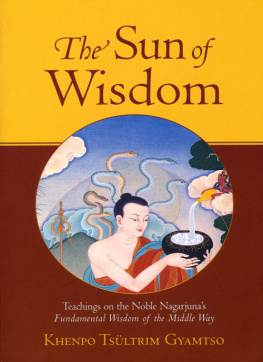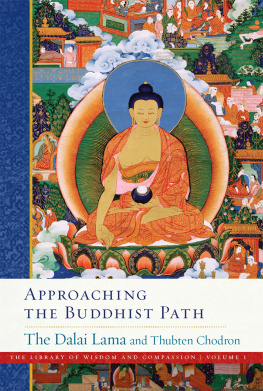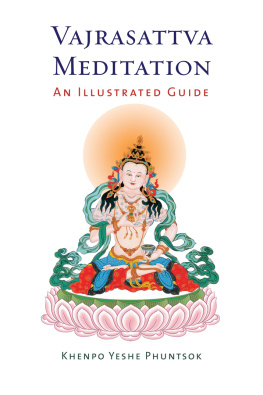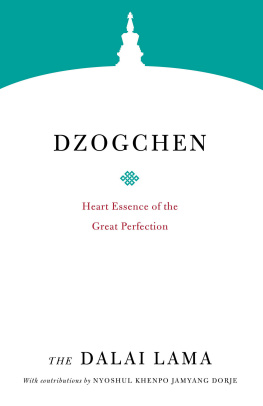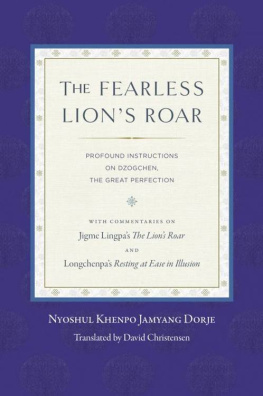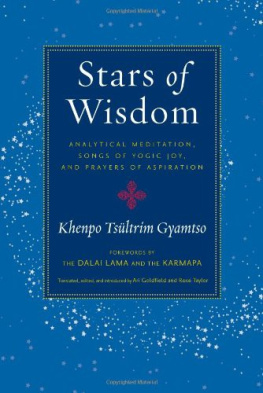
Wisdom Publications
199 Elm Street
Somerville, MA 02144 USA
wisdomexperience.org
2019 Khenpo Sodargye
All rights reserved.
No part of this book may be reproduced in any form or by any means, electronic or mechanical, including photography, recording, or by any information storage and retrieval system or technologies now known or later developed, without permission in writing from the publisher.
Library of Congress Cataloging-in-Publication Data
Names: Suodaji, Kanbu, 1962 author.
Title: What makes you so busy? / Khenpo Sodargye.
Description: Somerville, MA: Wisdom Publications, 2019.
Identifiers: LCCN 2019016595 (print) | ISBN 9781614295846 (pbk.: alk. paper)
Subjects: LCSH: Buddhism Psychology. | Happiness Religious aspects Buddhism.
Classification: LCC BQ4570.P76 S86 2019 (print) | LCC BQ4570.P76 (ebook) | DDC 294.3/444 dc23
LC record available at https://lccn.loc.gov/2019016595
LC ebook record available at https://lccn.loc.gov/2019980064
ISBN 978-1-61429-584-6 ebook ISBN 978-1-61429-607-2
23 22 21 20 19
5 4 3 2 1
Translated by Ke Jiang. Cover design by Marc Whitaker. Interior design by TL.
PREFACE
ONCE A MAN told me that while he can bear to be away from his wife for a couple of days, he cant be without his cellphone for even a moment. His cellphone, it seems, has become dearer than his own family.
What he said reflects our modern predicament: affection between people fades while dependence on external objects grows. In the past, if an ordinary person could lead a carefree life in a comfortable environment, he or she wouldnt have too many other material desires. Today, however, were bombarded with information, and temptations come at us from all directions. Every single person is so busy both externally and internally, but in the end, do we even know what on earth we were so busy with?
Rather than busying ourselves endlessly with the pursuit of this and that, it makes much better sense to calm ourselves and find true contentment. Now is the time to find the wisdom that brings calmness back to our mind. Fortunately, we need not search further than the Buddhas teachings for this.
Buddhism, though ancient, has never and will never become outdated. It has and will always emanate vigor and wisdom, just like a panacea with time-honored efficacy.
To help more people understand this wisdom, in recent years Ive visited over a hundred universities in order to share my thirty years of thoughts and realizations concerning the Buddhadharma. Ive offered advice on how to face lifes many twists and turns, and in the process have enjoyed numerous heart-to-heart exchanges with students and professors.
Many people have given me positive feedback on my talks and repeatedly asked me to write a book. So, based on some of my lectures and question-and-answer sessions, Ive compiled this book for each of you in this busy world. Through this, may you attain the inner peace that Buddhism describes, become less meaninglessly busy, and live with greater calm and self-confidence.
Sodargye
1. MEDITATION AND WEALTH
What hinders us isnt wealth itself but our attachment to it.
SOME OF YOU may think, Meditation is a Buddhist topic while wealth is secular. In one we are to give up attachment, while in the other we are to forge ahead with determination. How can these two ever become integrated?
Its actually not so complicated. The management of any business is ultimately the management of the mind. If you can manage your own mind through meditation, you can successfully manage wealth and business with ease.
Everyone longs for success. But whats the criterion for it? True success isnt merely enjoying wealth, status, or fame; instead, its the ability to rein in your mind and always feel content. This success is relatively easy to achieve through meditation.
What is meditation? Early Buddhist terms for meditation stem from the Sanskrit root dhyai , meaning to contemplate or meditate. One definition of meditation given in the Sixth Patriarchs Platform Sutra states that meditation involves becoming free from characterization externally and disturbance internally. More simply, it involves keeping your mind calm, away from the disturbances of external objects.
If our minds are constantly disturbed by complex emotions such as restlessness, anxiety, grief, and even excitement rising one after another, its not difficult to surmise that in all likelihood our actions and decisions will be misguided. In contrast, the choices made with a calm mind are most often wise and well thought out.
Here is a common experience: a person argues fiercely and incoherently with someone, but once they have calmed down after a couple of days, they start to feel regretful and think, Oh, I was angry when I spoke so irresponsibly the other day. What can I do to fix this situation? Its much better to avoid regrettable speech and actions in the first place than to try to placate someone afterward. Forming a habit of meditation is the best way to avoid this kind of mistake.
Routinely we wash after getting up in the morning and before going to bed at night. If our bodies need such sanitary care, our minds are certainly no different, so why not give those a cleanup every day too? If we form a habit of meditation, mental trash wont accumulate nor bring too much harm.
In the Great Treatise on the Perfection of Wisdom ( Mahaprajnaparamita Shastra ), the Indian Buddhist master Nagarjuna tells us, Meditation is the pure water that can clean up the dust of desire; meditation is the vajra armor that can protect against the arrows of afflictive emotions.
The Shurangama Sutra explains why this is: When crazy minds come to rest, that rest is enlightenment. Our mind is like the ocean. The moons reflection doesnt appear when the billows surge, but instead when the ocean is calm. Similarly, when our mind is restless and discursive thoughts rise one after another, wisdom cant appear. Its only when the mind is calmed through meditation that pristine enlightenment can peek through. Basically, when the mind reaches a truly peaceful state, the truth of phenomena can be perceived. If you doubt this, try meditating for a while tonight, and during this process, you might be able to realize something you hadnt noticed before.
Although in the strictest sense, true meditation involves abiding in the nature of Dharma, for ordinary beings and ordinary purposes such as avoiding losing our temper, meditation can also mean constantly keeping a calm mind whether in a vehicle, an office, or at home, or more broadly, whether moving, standing, sitting, or lying down.
Thus, we can delineate two categories of meditation: secular and supramundane meditation.
Secular meditation is the basic form of meditation just described, and its completely possible to master it as long as were willing to dedicate ourselves to it. By contrast, supramundane meditation is profound and highly advanced. Great practitioners such as Master Huineng (638713) from China, Jetsun Milarepa (10401123) from Tibet, and Nagarjuna (second century) have reached it. This kind of meditation seems far beyond our ability and its mastery may not be ensured even if we spare no effort on it in this life.
Supramundane meditation results in understanding the truth of all phenomena. There are two approaches to this: the first is to rely on ones own wisdom and instructions from a teacher and go through a long search for the truth, and the second is to rely on meditation to achieve the subtlest state of mind, which lets our pristine wisdom reveal itself. Many Zen masters follow the latter approach. For example, the Sixth Patriarch Huineng was not literate, let alone erudite. Yet through the power of meditation, he attained great enlightenment and unsurpassable wisdom.
Next page
